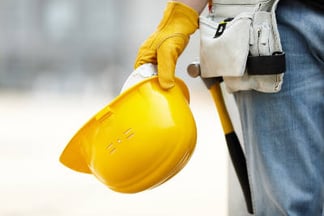From Walmart to Tesco, corporate social compliance and ethical sourcing programs are no longer in their fledgling stages. And the social compliance field in China has finally reached a certain level of maturity. Not all Chinese factories are audited for compliance. But such audits are now common enough that buyers will request social compliance audits to be performed at the factories that manufacture their products. Even many factories owners will have audits performed at their own cost to make sure they will never be disqualified from working with a buyer. If you look for a new home ware supplier nowadays, at least a third are already qualified Walmart suppliers and another third have been audited in the past couple years.
But just because more factories have been audited does not mean that the conditions at Chinese factories have actually improved. Rather, suppliers have learnt the system and adapted to get around it. Now you, as a buyer, need to decide if you will force your suppliers to actually improve.
How Have Factories Been Playing the System?
Let’s first look at how factories have changed over the past few years. Child labor, for example, is a clear violation in just about any modern social compliance program. Aside from ethical issues, you run the risk of a major public relations disaster if news gets out that your products are made using child labor. Few major manufacturers would be caught dead hiring underage workers nowadays. But many haven’t actually been able to move past their need for the low cost labor minors provide.
At the end of last year, the Wall Street Journal released an article exposing how Chinese suppliers have managed to keep their underage workers and still pass social compliance audits: internships. These internships are not regulated work-study programs that students apply to in order to learn new skills. Instead these internships are now a mandatory prerequisite for graduation from vocational high schools.
These internships are not regulated work-study programs that students apply to in order to learn new skills. Instead these internships are now a mandatory prerequisite for graduation from vocational high schools.
These interns are placed on production lines where they gain little, if any, experience relevant to their field of study. Interns are generally considered cheaper, more controllable versions of their older, non-student counterparts. For the tech factories that supply Apple, Asus, Toshiba and others, these “interns” can make up to 30 percent of the suppliers’ actual workforce.
How Effective Can Social Compliance Audits Really Be?
This past February, Apple released their latest Supplier Responsibility Progress Report. According to the report, this has been a year of success for social compliance, but rebuttals from the China Labor Watch (CLW), Students and Scholars Against Corporate Misbehavior (SACOM), and other independent researchers suggest it was anything but.
Apple stated that in 2014 they performed over 600 audits at almost 500 suppliers. Moreover, the company claimed they put in place corrective action plans at each of these locations. Opposing reports do not focus on the audits, but instead, address the violations themselves and find a clear lack of corrective action between 2013 and 2014 – not just at these suppliers but within Apple itself. These seemingly contradictory sets of information highlight the biggest loophole within today’s social compliance auditing system: audits and corrective action plans don’t actually make a company socially compliant.
Just because you give a factory a piece of paper saying they have done something wrong does not mean the factory will rectify any of these issues. Even if they do make changes based on the report, that doesn’t mean their new processes are any more socially compliant than before.
The potential turning point in social compliance that’s fast approaching is a shift from requiring factory management and staff to simply comply with audits to requiring them to actually reform the way they do business.
How Will These Changes to Social Compliance Affect Your Supply Chain?
Actually following through on the changes that are required for social compliance can be expensive, whether you do it yourself or call in experts to help a factory meet standards for you. Chinese manufacturing is beginning to feel the stain of the slowing economy. And in these times it may seem the cost is too high. But the risks you take by forgoing social compliance are higher than ever.
 Last December, China’s latest work safety law went into effect. The new law is a sign that government is beginning to take a firm stand against flagrant disregard for workers’ safety. One possible catalyst for change was the widely-reported explosion of a car parts factory in Kunshan last August which killed almost 150 workers and left over 100 more injured.
Last December, China’s latest work safety law went into effect. The new law is a sign that government is beginning to take a firm stand against flagrant disregard for workers’ safety. One possible catalyst for change was the widely-reported explosion of a car parts factory in Kunshan last August which killed almost 150 workers and left over 100 more injured.
In this new law, not only have the number of possible penalties increased but the fines have become steeper and liability has been expanded. Regulators and Trade Unions have been given more authority to investigate and demand reforms, and new databases are being created to track repeat violators. Perhaps most consequential for you, regulators now have the authority to physically cut all power and utilities if factories do not cooperate.
How Can You Protect Yourself?
The solution to social compliance problems is continuous oversight. Auditing your supplier once and requiring a corrective action plan is not enough. What really needs to happen is following up to make sure corrective action is actually being taken by factory staff. Whether your factory is guilty of using unsafe storage practices for hazardous materials or employing underage workers, you can’t be sure they’ve corrected any issues without repeated audits. Make it clear to your supply that if they can’t and aren’t willing to meet your social compliance standards, you’ll find a supplier that will.






